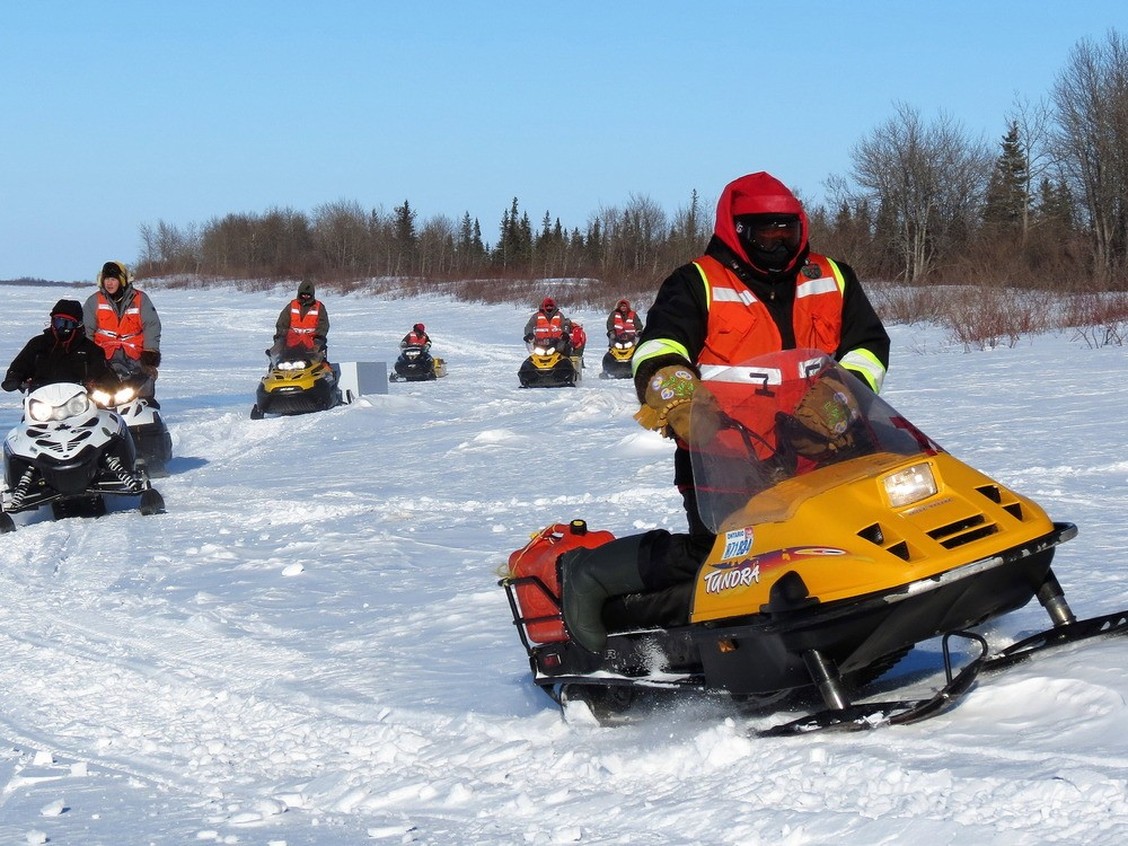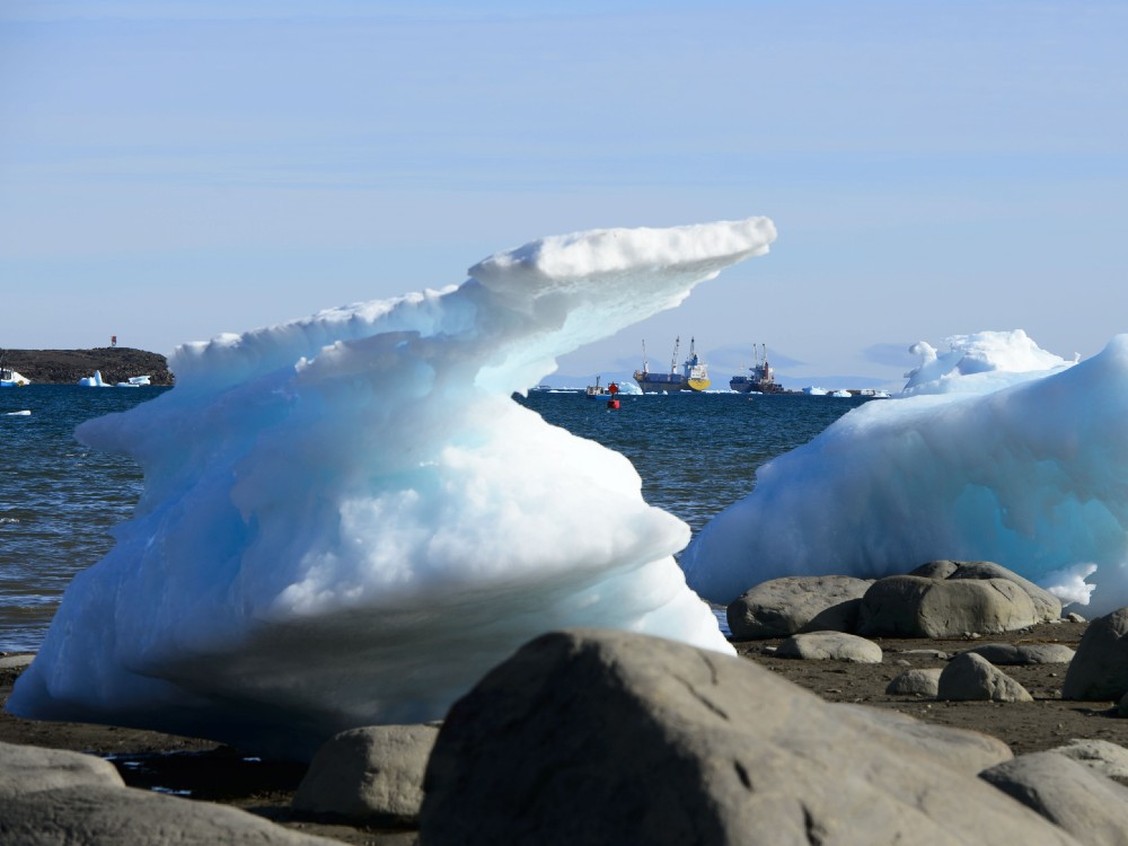Defending the Arctic
"The importance of these issues has been rising steadily over time, due to increased access to the region, competing interests, and changing geopolitical dynamics.""Canada's armed forces are highly skilled and fiercely dedicated, but they remain below complement, under-resourced and stretched to the limit. They deserve our support.""More than ten [previously abandoned Soviet-era far-north military bases] are operational. Nuclear-powered submarines are stationed there.""Russia also has an arsenal of hypersonic missiles, which combine the maneuverability of cruise missiles with the range and speed of intercontinental ballistic missiles.""Our report emphasizes the urgency of procuring and activating these new defensive systems."Senator Tony Dean, committee chair, Senate national security, defence and veterans affairs committee, Parliament of Canada"The importance of the Arctic in military defence and security cannot be overstated.""However, it is equally important to note that while the Arctic is viewed as a strategic location, it is also my home and the home of the Inuit people.""During committee visits to Inuvik and Iqaluit, we were reminded of the tangible presence that the military once had in these communities, and the desire for their return.""The Canadian Rangers and Coast Guard remain visible connections to the military, yet the pervasive challenges posed by the vastness, elements and obstacles persist."Senator Margaret Dawn Anderson
 |
| Master Cpl. Enoki Irqittuq from 1 Canadian Ranger Patrol Group is pictured in Nunavut (Sergeant JF Lauzé/Canadian Forces Combat Camera) |
A fact-finding mission that took place in 2022 has resulted in a report recently issued and under discussion, focusing on the state of Arctic defence. The Senate national security, defence and veterans affairs committee found that much work must be undertaken to meet the challenges reflecting contemporary geopolitical conflict. These link to the issues that persist regarding Canada's and NORAD's capacity to monitor still-subtle but very real aggression from Russia, from across the Arctic Circle.
Sites in Canada's far north visited by the study group included Iqaluit and Cambridge Bay in Nunavut, Tuktoyaktuk and Inuvik in North West Territory. There they spoke extensively with military and government officials as well as local Indigenous leaders and members of their communities. The condition of Canada's defence forces is rather grim, stretched as thin as they can be without snapping. The Canadian Army is vastly understaffed. Its Navy is short of vessels as is its Air Force, with current stock at the end of their useful life.
Initiatives like Operation UNIFIER in support of Ukraine's military defence against the Russian invasion, along with Canada's battle group in Latvia under NATO and the deployment of an additional warship to the Indo-Pacific through Operation HORIZON -- at the same time being called on domestically to aid in handling the unprecedented wildfire season throughout Canada, has drained its military reserves.
Senators observed Canadian military commanders at work "seamlessly" with their American counterparts during their tour of NORAD headquarters in Colorado Springs. NORAD is described as the "world's only binational military command structure". NATO's northern flank has come under increased scrutiny in relation to ongoing Russian aggression. The longer navigation seasons as a result of the dwindling ice packs have sparked concern among Arctic nations, with northern defence back on the agenda.
Chief of Defence Staff General Wayne Eyre has warned that Russia is in the process of reoccupying far north military bases abandoned at the end of the Cold War. Those old war bases have undergone extensive upgrades in refurbishment in preparation for reestablishing them as actionable military bases. Serious questions have arisen whether NORAD has the required capacity to monitor and thwart emerging threats that require modern space-based surveillance systems in operation alongside ground-based, over-the-horizon radar networks.
 | |
| Canadian Rangers are seen here conducting search and rescue training near Moose Factory, a community in Northern Ontario, in 2017. Photo by Sgt. Peter Moon |
Senator Margaret Anderson, who was raised in Tuktoyaktuk, her community part of the now-dismantled Distant Early Warning radar station of the Cold War era, states the importance of including local, Indigenous voices in northern defence must not be overlooked. Tuktoyaktuk's ports are seeing increased traffic, with current resources making it impossible to track those aboard incoming ships, representing a serious national shortcoming for security purposes; increased visits result in opportunities for espionage.
Issues of note, she pointed out, include a lack of basic and secure infrastructure and continuing reliance on outdated equipment, and even that is frequently in short supply. China's increasing interest in the north, along with Beijing's growing warmth with Moscow represented another issue the committee drew attention to. "We have to keep an eye on this. China's 'belt-and-road' infrastructure funding initiatives might eventually emerge as a competitor in the absence of an accelerated homegrown Arctic investment strategy", pointed out Senator Dean.
The North Sea provides handy transport routes east for Russia which currently draws about 80 percent of its natural gas from its Arctic gas fields. The impacts of climate change on the north -- melting permafrost, receding shorelines and deteriorating infrastructure -- pointed out the senator, pose immense challenges.
 |
"Our relatively low population density up there, it's not inconceivable that our sovereignty may be challenged.""We've got to have capabilities in place that can protect that sovereignty, going decades into the future."General Wayne Eyre, Chief of Defence Staff
Labels: Canadian Arctic, Canadian Rangers, China, Melting Sea Ice, NORAD, Russia

0 Comments:
Post a Comment
<< Home